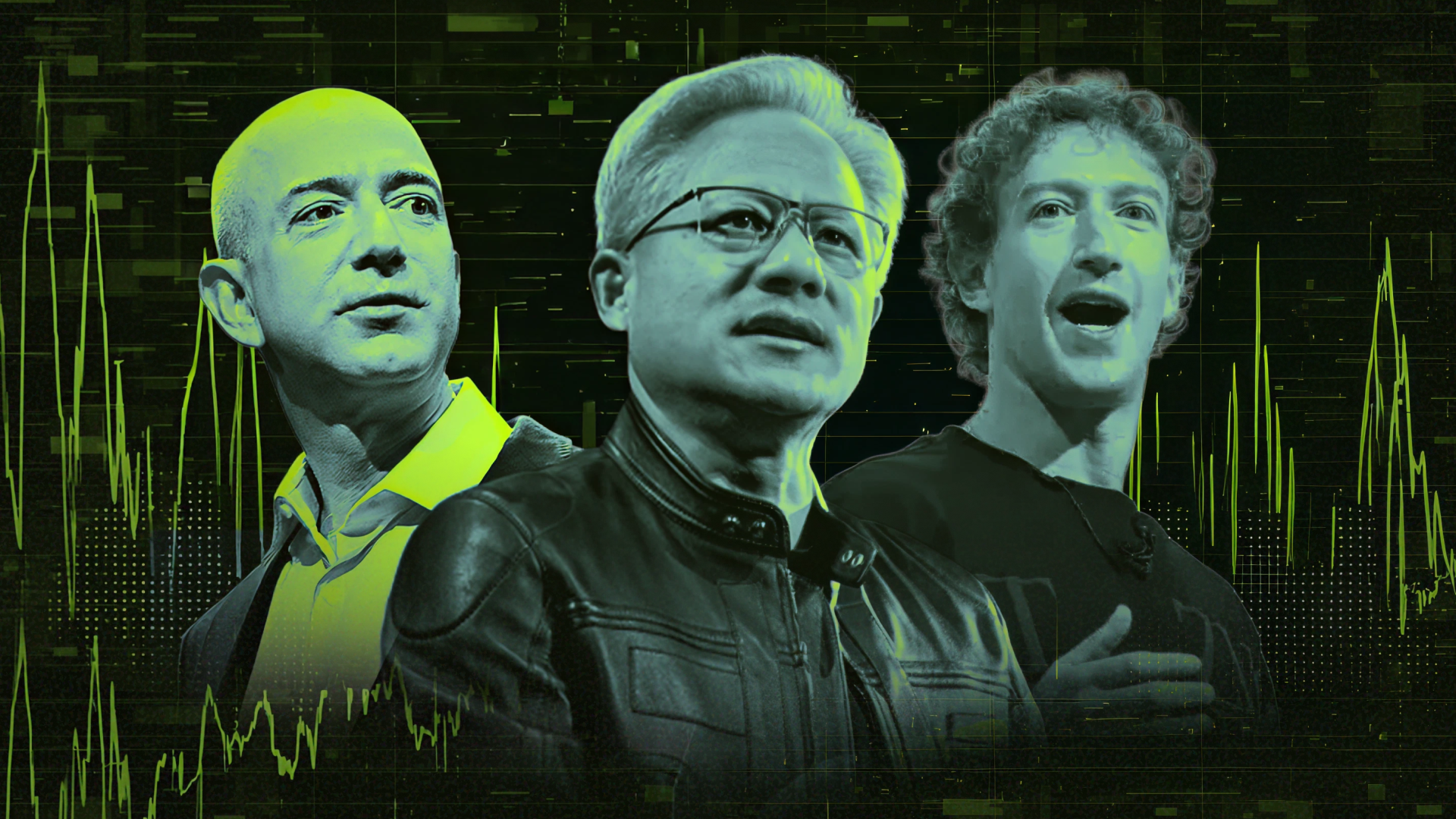The world's biggest company is growing at 56%, capitalism is dying, and here's how to profit from AI feudalism
Artificial intelligence bears look away now.
Nvidia (NASDAQ: NVDA), as the AI revolution's bellwether just revealed sales surged 56% to $46.7 billion in the three months to June 30.
On Thursday's earnings call Jensen Huang the founder of the semiconductor maker predicted another $US3 trillion to $US4 trillion in AI infrastructure spend by 2030.
He thinks total AI capex currently pegged between $US400 billion and $US500 billion in 2026 will accelerate in size to 2030, with Nvidia in pole position to profit.
.png)
The sceptics argue Nvidia will tumble when mega-cap tech concludes it's only earning $4 in revenue from $10 of capex, but I reckon they're wrong.
If you're negative AI, I think you're misunderstanding mega-cap tech, its goals, and business models. Briefly, here's why.
How to profit from the death of capitalism
First, we know that mega-caps aren't afraid to lose money to thump any competition in what will prove an existential race for many companies. Loss-leading investments are better than going extinct. Short-term profits don't matter to hyperscalers that reach billions of users every day. All that counts is leading the race.
Second, the business models of the mega-caps funding Nvidia is as internet landlords earning rent, not making a profit as a capitalist concept.
Once seen this way, it's easier to see why they're investing jaw-dropping amounts into AI to accelerate their rents.
As an example, recently at Livewire Tower we had a debate about why Domino's Pizza (ASX: DMP) shares have bombed over the past seven years.
Domino's own management admits that not being on the online aggregator apps such as Uber Eats in Australia has hurt its ability to reach customers.
Uber Eats and Uber ride share (NASDAQ: UBER) are a small example of an internet landlord earning a rent, although tiny versus the likes of Meta, Amazon, Microsoft and Google.
It's strange to think that a Thai, Italian, or Indian restaurant in Paramatta, Collingwood, or Port Macquarie, now has a Silicon Valley company sitting between it and its Aussie customers to take a fee.
It's more ridiculous to think that a Californian company could - if they wanted - switch off the ability of the majority of restaurants in Australia to reach a lot of their customers.
Is this power compatible with the indivisibility of free markets and capitalism? Of course not, it's more something you'd associate with communist China.
Today, capitalist ideology and profit are being usurped by limited competition and the rent-seeking of mega-cap tech's online feudalism.
The kicker is AI will accelerate this and it doesn't look like there's any going back.
Another example, features my own media industry.
Traffic to large and small news websites in Australia and the UK has plunged 80% or more in some instances recently, because Google has changed its algorithms, in response to AI.
How can a company listed in New York with a head office nearly 12,000 kilometres (AI told me) from Australia control who gets to see what from news publishers in Australia? The landlord-like power to kick out anyone it wants is also a departure from a capitalist system of free market competition. Don't forget Alphabet has about 5 billion users across its product suite as an internet landlord now.
AI winners
I expect AI will accelerate the descent of capitalism and rise of online feudalism to concentrate the market more in a handful of mega-cap tech winners. We're already seeing this as Nvidia now represents 8% of the S&P/500 and it also explains the wild enthusiasm of mega-cap tech bosses to invest heavily in the AI future.
I also see it as bullish for the business models of many mega-cap techs that train algorithms, before they train their billions of users back. This is really a large part of how AI is developing already.
The technology will also result in a further departure from the capitalist concept of reinvesting capital into workers and machines to create more profit for owners.
This concept of profit, employees, and entrepreneurialism evolved from Enlightenment thought and the Industrial Age, after capitalism largely defeated communism and trade unions to rule the roost.
Finally, in terms of how to think about wealth creation and AI. Remember all of the above points are before we assume AI will revolutionise every part of society across robotics, online assistants, wearables, transport, healthcare, industrials, and manufacturing.
Politics and AI
Of course, there are some risks to all this including regulation via the power invested in sovereign governments and the courts.
Realistically though the only game in town here is still the US, where 99% of Congress is all for sale, already bought, or up to their necks in stocks themselves.
The US has free markets, but capital controls Congress. Its court system or separation of power under its constitution has done nothing to break internet monopolies.
China also has free markets, but the Communist Party controls capital. It and the US are at loggerheads over the future of AI.
Europe, where the worries about mega-cap tech's rent seeking are ingrained into some of the political class on the left is moving against it mostly via the courts and the dubious powers of the European Commission, although this is a very thorny issue.
Next week, I'll cover more on this and how the future of long-term wealth creation may play out.
5 topics
3 stocks mentioned
.jpg)
.jpg)